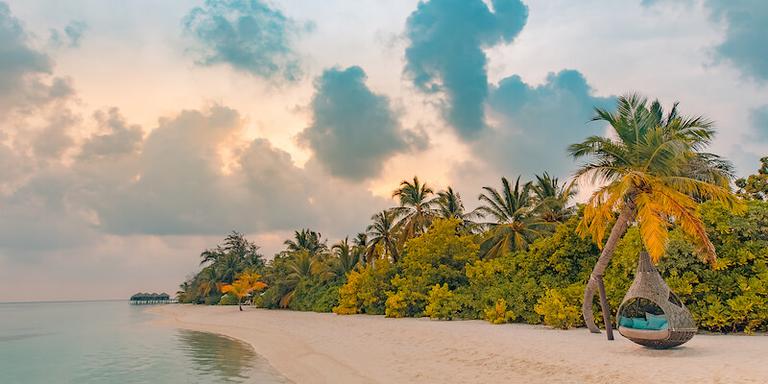
Updated on: March 20, 2024
13 Remote Work Programs: Travel and Work Remotely
If you’ve been feeling cooped up or bored in the same place, it may be time to spice things up with a location change. Below are remote work travel programs from countries that are actively courting remote workers! These programs make it easy for you to travel and work remotely from a new location and help maximize the true benefits of flexible work.
Similarities of Remote Work Programs
The programs we’re spotlighting have several commonalities. However, double-check the specifics of each before committing. Also, check with a qualified tax professional to make sure you don’t run afoul of your home country’s tax rules.
These remote work travel programs almost always require or have:
- Proof of employment (either from your employer or as a self-employed individual)
- Minimum income requirements
- Restrictions on receiving any income from a local company
- Length of stay requirements and restrictions
- No local income taxes
- Proof of health insurance
- Quarantine and COVID-19 test requirements and restrictions
Remote Work Programs In-Depth
While the programs have certain similarities, there are also differences—beyond their locations! Here are more detailed looks into these remote work travel programs.
Antigua and Barbuda
The Nomad Digital Residence visa program from Antigua and Barbuda targets digital nomads but is open to anyone who can work from anywhere. The visa is good for up to two years and lets individuals and their families live and work from either island.
You can be employed by a company or self-employed as long as you provide proof that you can support yourself (and dependents) during your stay and make at least $50,000 USD per year.
Aruba
Aruba started the One Happy Workation initiative. Similar to an extended vacation package, the “workation” lets U.S. nationals stay for up to three months. It also includes exclusive deals on hotels, villas, condos, dining, entertainment, and more.
Once approved, you can stay in Aruba for as little as one week. You can also stay the full 90 days; however, your stay cannot exceed that time.
Unlike other programs that require you to have health insurance, Aruba requires everyone to purchase Aruba Visitors Insurance for the duration of their stay. This special insurance covers any treatment and care for you should you contract COVID-19 during your stay.
Barbados
Barbados’ 12 Month Welcome Stamp program is a 12-month visa program. Remote workers and their families can live and work remotely for a year while making Barbados their new home.
During the 12 months your stamp is valid, you can come and go as you please. And, while you’re in Barbados, your children can attend private or public schools for a fee.
Like other programs, Barbados requires all remote workers to have valid medical insurance before you can receive the visa stamp. However, if you’re having trouble getting medical insurance in your home country, you can purchase medical insurance in Barbados.
Bermuda
Bermuda has a One Year Residential Certificate. The program is similar to other remote work programs, with two notable exceptions.
First, the program isn’t strictly for remote workers. Students who attend online school can also enroll in the Residential Certificate program. Like remote workers, you will have to prove you’re enrolled in school and have the means to support yourself during your residency.
Second, if you find you love living and working in Bermuda, you can renew your certificate by filling out a new application to work remotely for another year.
Cayman Islands
The Global Citizen Concierge program of the Cayman Islands lets people live and work on the three islands for up to two years. During those two years, you can travel in and out as often as you want. However, you must stay in the Cayman Islands for a total of 90 days during every 12-month period.
If you are employed by someone else, you must provide proof of employment on company letterhead that includes the following information:
- Your title
- The length of your employment
- Your annual salary
The Cayman program also has specific annual salary requirements based on how many people are joining you:
- An individual must make $100,000 USD
- An individual plus spouse or civil partner must make $150,000 USD
- An individual plus spouse or partner and dependents must make $180,000 USD
Applicants also need a notarized bank reference, which is the bank manager’s written opinion of your credit standing. In addition to providing six months of bank statements, the bank reference must include:
- How long you’ve been with the bank
- Your average account balance
Finally, like the other programs, you have to provide proof of health insurance. However, you must have held the policy for at least 30 days prior to arrival in the Caymans. Alternatively, you can obtain local health insurance within 30 days of arriving.
Country of Georgia
Remotely from Georgia is the Country of Georgia’s digital nomad visa. While it’s open to location-independent workers, only residents of one of 95 countries can apply. You can live and work in Georgia for up to one year.
Applicants need proof of the following:
- Minimum monthly income of $2,000
- Health insurance good for your entire stay
- A valid passport that does not expire before you leave
Anyone coming to Georgia must quarantine at one of 19 pre-approved hotels for 12 days at your expense. However, if you can show proof that you’ve completed the full course of a COVID-19 vaccine, you may be able to skip the quarantine.
Curacao
The @HOME in Curacao program is open to remote workers and digital nomads. The program is for six months, but you can extend that for another six months. During your stay, you can travel in and out of Curacao as often as you wish.
Applicants have to prove their job is location-independent and that their employer is located outside the country. If you’re self-employed or a freelancer, you have to prove that your clients are not in Curacao.
The application fee is approximately $3,000. You also have to provide valid medical insurance, travel insurance with COVID-19 coverage, and proof of a return ticket as part of your application.
Dominica
Dominica launched the Work In Nature (WIN) Extended Stay Visa, and any location-independent worker over the age of 18 can apply. The visa is good for up to 18 months.
Applicants must earn at least $50,000 annually, and if you bring family, you must have the ability to support them as well. To apply, submit the following:
- Copy of your passport
- Proof of relationship to your dependents
- Police records
- Bank reference letter
- Employment letter or copy of your credit report if your self-employed or a freelancer
- Health insurance
Any document not in English must be translated and include a certified copy with your documents.
Dubai
Dubai’s program is good for one year upon approval. During that year, you can come and go from Dubai as often as you want as long as you are not gone for longer than six continuous months.
Dubai’s program is unique in that you’ll have access to all standard resident services. This means you can rent an apartment or home (instead of living in a hotel or renting a vacation property) and have access to local phones and utilities. You’ll also be able to bank locally, purchase a vehicle, and can even take advantage of the local schools if you choose.
Also unique to this program, you can go to Dubai on a standard tourism visa and test drive remote working. If it turns out you like it, you can transfer to the remote work program. And, if you love living and working in Dubai, you can renew at the end of the year.
To apply for the program, you need the following:
- A minimum income of $5,000 USD per month (employee or self-employed)
- At least six months left on your passport
- Health insurance with UAE coverage validity
- Proof you’ve worked for your employer for at least a year
- Proof you’ve owned your company for at least a year
- Three most recent months of bank statements
Estonia
The Estonia Digital Nomad Visa program is open to any remote worker who is location independent. You can be an employee or a freelancer as long as your company or the majority of your clients are registered outside of Estonia. Applicants need to provide proof that their gross income has been at least 3,504 Euros (gross) per month for the previous six months.
The visa is good for one year, and you can apply with the Estonian Police or Border Guard Office in the country or at any Estonian embassy. It’s important to note that Estonia will not accept applications via private agencies.
You cannot extend the visa, but you can renew it as long as your total stay does not exceed 548 days within a 730 day period.
Iceland
Iceland has a long-term remote work visa good for up to 180 days. Once approved, you have to arrive in Iceland within 90 days. During your stay, you can travel in and out of the country for up to 90 days total. If you bring children, you need to prove that they are enrolled in a remote school in your home country or home school them. You can enroll them in a local school, but you must have written confirmation from that school that the child can attend before you go to Iceland.
Like many countries, Iceland has an income requirement for remote workers. Applicants must prove they make at least 1,000,000 ISK per month—or about $8,000. If you’re coming with family, you need to make at least 1,3000,000 ISK per month ($10,000).
To apply:
- Pay the processing fee of 7,800 ISK (approximately $63)
- Provide proof of health insurance that’s valid for your entire stay and covers 2,000,000 ISK per person ($16,000)
- Have a passport that’s valid for at least 90 days past the date of the visa expiration
Mauritius
The Mauritius Premium Travel Visa is valid for one year with an option to renew. While open to remote workers and digital nomads, only citizens of some countries can apply. During your stay, you cannot work locally, and your primary source of income must be located outside of Mauritius.
To apply, you must provide the following:
- Proof of round trip travel with return travel out of the country already paid for
- Pre-booked accommodations for a mandatory 14-day quarantine stay
- Travel and health insurance that’s valid for your entire stay
- Proof of a minimum income of $1,500 per month plus an additional $500 per month for each dependent younger than 24
Additionally, any document that’s not in English or French must include a certified translation for said documents.
Montserrat
The Montserrat Remote Worker Stamp is a 12-month travel permit for any non-resident who works for a private or public entity. You can work for a company located outside Montserrat or be a freelancer with active contracts and clients outside the country. During the 12-months, you can travel in and out of Montserrat as often as you want.
Applicants must have an annual income of at least $70,000 and valid medical insurance with COVID-19 coverage. Children must be enrolled in school and can attend a local school for $100.
Ready for a Change?
If you’ve got the flexibility to choose where you live and work and you’re in the mood for a new view, consider applying to one of these remote work programs that let you travel and work remotely.
If you’re feeling inspired to start searching for a remote job, Remote.co has you covered. We post fully remote jobs in roles that range from entry-level to executive. Browse our fully remote openings today!
Connect to Remote Jobs Now>
By Conor McMahon | Categories: Work Remotely



